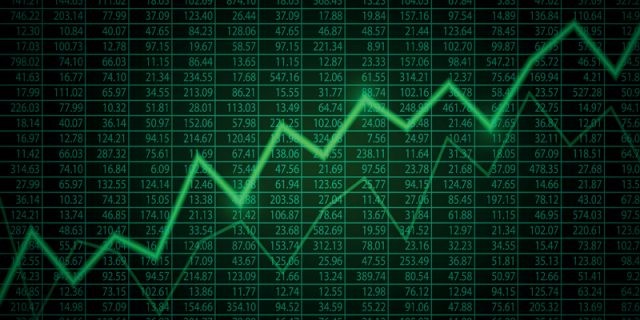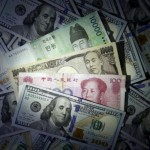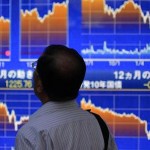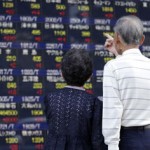Here is how currencies, stocks, bonds and commodities move

Financial markets showed signs of stabilizing after a fresh trigger from North Korea had sent money into haven assets, with focus returning to comments from central bank policy makers.
Stocks in Asia were broadly lower, though declines were modest, as gains in gold and the yen petered out. North Korea had injected a note of caution to markets on Monday after its foreign minister declared that the nation can shoot down U.S. warplanes. Focus remains on Chinese property developers, as one of the world’s most extreme stock rallies gets a reality check.
North Korean Foreign Minister Ri Yong Ho described President Donald Trump’s recent comments as tantamount to a declaration of war. The White House denied it has declared war on Pyongyang, while China’s ambassador to the UN told Reuters the situation is “getting too dangerous.”
“This does represent a significant escalation in rhetoric and raises the risk of a tactical misstep,” said Tapas Strickland, a Sydney-based economist at National Australia Bank Ltd.
A speech by Federal Reserve Chair Janet Yellen on Tuesday will be parsed as policy makers continue to disagree on whether to raise U.S. interest rates again this year. New York Fed President William Dudley argued the U.S. central bank should stick with its strategy of gradual monetary policy tightening, a view echoed by Yellen. Meanwhile, Chicago Fed President Charles Evans urged caution as did Minneapolis Fed President Neel Kashkari. Investors see a roughly 60 percent chance that rates will be increased again in December following moves in March and June.
What to watch out for this week:
- Later in the week, Bank of England Governor Mark Carney speaks, as does soon-to-depart Fed Vice Chairman Stanley Fischer.
- European Union chief Brexit negotiator Michel Barnier and U.K. counterpart David Davis begin their next round of negotiations.
- Household spending last month in the U.S. probably posted the smallest gain since February as motor-vehicle sales shifted into a lower gear, economists forecast government figures to show.
- The euro-area inflation rate may have accelerated a touch to 1.6 percent in September from 1.5 percent but the core will probably remain at 1.2 percent when data is out on Friday.
Here are the main moves in markets:
Stocks
- Japan’s Topix index swung between gains and losses as of 12:47 p.m. in Tokyo. South Korea’s Kospi index fell 0.3 percent and Australia’s S&P/ASX 200 Index lost 0.1 percent.
- Hong Kong’s Hang Seng Index was little changed after slumping 1.4 percent on Monday as Chinese property developers tumbled on fresh mainland home curbs.
- Futures on the S&P 500 Index fell 0.1 percent. The underlying gauge lost 0.2 percent, while the Nasdaq Composite Index declined 0.9 percent following a selloff in technology stocks.
Currencies
- The Bloomberg Dollar Spot Index was down less than 0.1 percent after climbing 0.4 percent to the highest in more than three weeks.
- The yen added 0.1 percent to 111.59. It gained 0.2 percent on Monday.
- The won fell 0.3 percent to 1,135.57 per dollar.
- The euro was at $1.1859 after falling 0.9 percent.
- The Australian dollar bought 79.44 U.S. cents. The New Zealand dollar dropped 0.3 percent, adding to a 0.9 percent slide on Monday.
Bonds
- The yield on 10-year Treasuries was slightly lower at 2.21 percent, maintaining a three basis point drop on Monday.
- Australia’s 10-year bonds yield fell three basis points to 2.77 percent.
Commodities
- Gold was steady at $1,311.91 an ounce, after jumping 1 percent on Monday.
- West Texas Intermediate crude edged higher to $52.37 a barrel after rising 3.1 percent on Monday to the highest since April. Turkey threatened to shut down Kurdish crude shipments through its territory.
Source: Bloomberg – Stocks in Asia Lower as Safe-Haven Rally Subsides: Markets Wrap





























